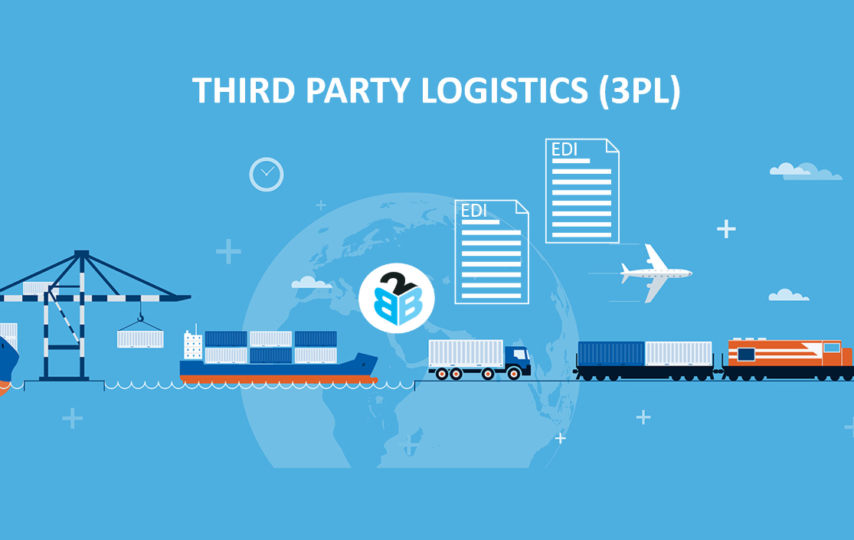Third party logistics is the management of goods by an organization on behalf of another. 3PLs typically provide warehousing, transportation, and other logistics services to other organizations.
What is Third Party Logistics?
In simple terms, third party logistics (3PL) is the process of outsourcing the storage and transportation of goods and materials to a specialized company. 3PL in Canada typically have more resources and infrastructure than the businesses they serve, which allows them to provide a higher level of service at a lower cost.
3PL can be used for a variety of different purposes, including:
1. Transportation management – 3PLs can handle all aspects of transportation, from planning and routing to tracking and billing. This can free up valuable time and resources for businesses that don’t have the internal staff or expertise to manage their own shipping.
2. Inventory management – 3PLs can help businesses keep track of their inventory levels, ensuring that goods are available when needed and reducing the risk of overstocking or stockouts. They can also provide warehousing services, which can be especially helpful for businesses with seasonal or fluctuating inventory needs.
3. Order fulfillment – 3PLs can manage the entire order fulfillment process, from receiving orders to picking and packing items to shipping them out to customers. This can help businesses improve their customer service and order accuracy while reducing their own costs and labor requirements.
4. Supply chain management – 3PLs can provide comprehensive supply chain management services, coordinating with suppliers, manufacturers, and other partners to ensure that goods flow smoothly through the system from start to finish. This can help businesses reduce costs, improve efficiency, and avoid disruptions in their supply
The benefits of Third Party Logistics
There are many benefits of using a third party logistics provider (3PL). Perhaps the most obvious benefit is that it can save your business time and money. By outsourcing your logistics needs to a 3PL, you can focus on your core competencies and leave the logistics to the experts.
In addition to saving time and money, using a 3PL can also improve your customer service. A good 3PL will have a robust network of transportation and warehousing partners, which gives them the flexibility to meet your customers’ needs. They will also have the latest technology to track shipments and provide real-time updates, so you can always keep your customers informed.
Another benefit of using a 3PL is that it can help you expand into new markets. A good 3PL will have an intimate knowledge of the supply chain in their market, which they can use to help you enter new markets quickly and efficiently. They can also help you navigate the often-complex regulations surrounding international trade.
Lastly, working with a 3PL can give you peace of mind knowing that your logistics are in good hands. When you partner with a reputable 3PL, you can rest assured that your shipments will arrive on time and in good condition – giving you one less thing to worry about.
The costs of Third Party Logistics
Third Party Logistics (3PL) providers offer businesses a way to outsource their logistics and transportation needs. This can be a cost-effective solution for businesses that do not have the resources or expertise to manage these functions in-house. However, there are some potential costs to consider when working with a 3PL provider, such as:
1. Transportation costs: Depending on the scope of services provided by the 3PL, you may be responsible for paying transportation costs associated with shipping your products to and from their facilities.
2. Storage fees: If you utilize the 3PL’s warehousing and storage services, you will likely be charged storage fees based on the amount of space your products occupy in their facility.
3. Management fees: Most 3PL providers charge a management fee for overseeing the logistics and transportation operations on your behalf. This fee is typically a percentage of the total cost of goods shipped.
4. Technology fees: Some 3PLs charge additional fees for using their proprietary technology platforms and tools. These fees can vary depending on the features and functionality offered by the platform.
5. Insurance costs: Many 3PLs require companies to purchase insurance to cover any damage or loss that may occur while their products are being transported or stored. The cost of this insurance will be passed on to you as part of your overall charges from the 3PL provider.
How to choose a 3pl company
There are a few key things to look for when choosing a 3PL company. First, you want to make sure that the company has experience in your industry. It’s also important to choose a company that has a good reputation and is financially stable.
You’ll also want to consider your shipping needs when choosing a 3PL. For example, if you need international shipping, you’ll want to make sure the company you choose has experience with that.
Finally, you’ll want to get quotes from several different 3PL companies before making your decision. This will help you ensure that you’re getting the best possible price.





